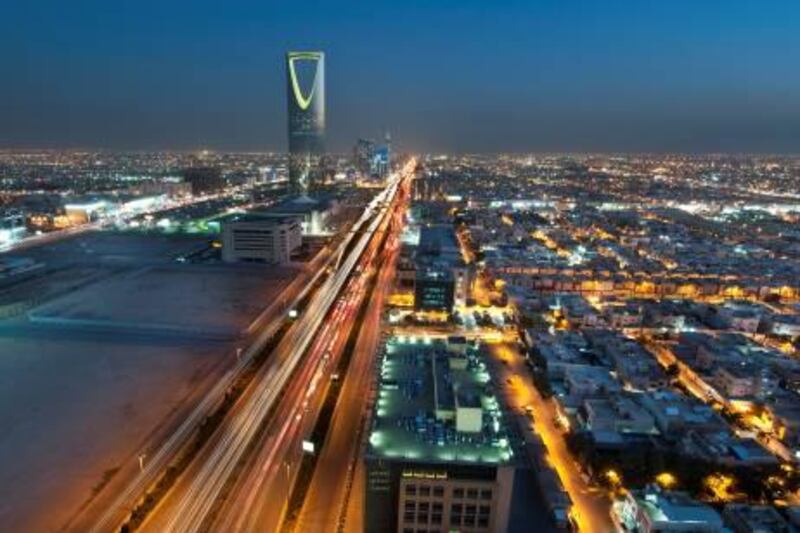Saudi Arabia on Monday has awarded US$22 billion in contracts to build a metro in Riyadh, the biggest public transport system under development according to the government.
Six driverless subway lines, set to be built all at once over the next five years, are to span 176 kilometres connecting the airport, government buildings, universities and the city centre - making it an unusual and potentially disruptive construction project with building sites set to spring up across the capital.
The government gave out three engineering and construction packages this week: a $9.4bn contract for two metro lines has gone to a consortium of the US's Bechtel, Germany's Siemens, the regional Consolidated Contractors Company and Saudi Arabia's Almabani; a $5.2bn contract went to a consortium led by Italy's Ansaldo STS; and a $7.8bn contract for three lines was awarded to Spain's Fomento de Construcciones y Contratas (FCC), France's Alstom and South Korea's Samsung C&T. It was the biggest international construction contract for a Spanish company in history.
In all, the contractors will use 600,000 tonnes of steel, or the equivalent of 80 Eiffel Towers, and 4.3 million cubic meters of concrete, equal to 11 Burj Khalifas. Thirty thousand workers will be required.
The kingdom's metro plans are the latest in a rush of transportation spending in the Arabian Gulf. Riyadh's population is projected to balloon from 5.7 million to 8.3 million by 2030. Two per cent of residents use public transport today, according to FCC.
Doha showered billions of dollars in metro contracts on foreign bidders last month as it prepares for the 2022 World Cup and last year Saudi Arabia authorised $16.5 billion in upgrades to public transportation in Mecca. Jeddah and Abu Dhabi are set to be next to award contracts for their own rail schemes and Dubai also plans to accelerate its metro expansion plans should it win a bid for the Expo 2020.
The repercussions of the Arab Spring across the region mean that contractors must engage more with the local population to provide jobs, training, and transparent information said Peter Dawson, the president of Bechtel's civil infrastructure unit.
"One of the realities of it is that everything that happens, particularly with public works and infrastructure, is more in the eye of the public," he said in an interview at the company's engineering centre in Dubai. "Stakeholder management and community management is more than it was thirty years ago – and probably more than it was five years ago. There are some contractors who just sort of bring in what they need to bring in, do their own thing, and try to avoid the local economy as much as possible. But we've learnt that that's not always the most successful way to do it."
Bechtel and potential partners are already assembling a team in Abu Dhabi to bid for the capital's Dh7bn metro project, expected to be tendered early next year. Companies are waiting to see if Abu Dhabi will split packages by line, as has Riyadh, or by the type of work. Three lines are planned: from the port to Zayed Sports City, from Marina Mall to Reem Island and from Saadiyat Island to the Al Wahda bus stop.





